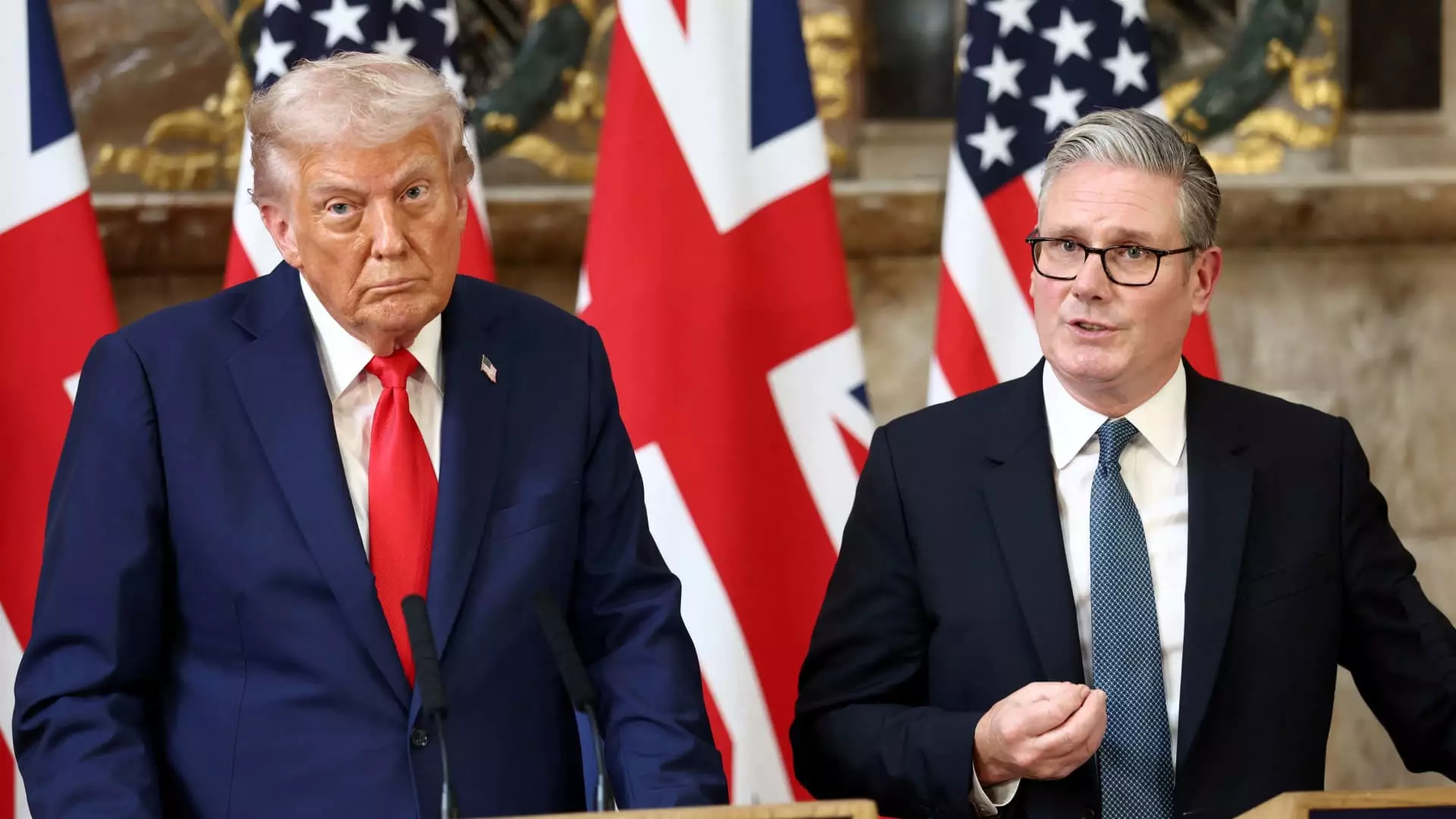In a moment that fuels both optimism and skepticism, Blackstone’s staggering pledge to invest nearly $135 billion in the UK has captivated politicians, business leaders, and investors alike. On the surface, these numbers seem to herald a new dawn for Britain’s economy, promising revitalization through huge inflows of capital into real estate, infrastructure, and corporate ventures. Yet, beneath this impressive façade lies a complex web of assumptions, uncertainties, and a bittersweet reminder that not all pledges translate into tangible impact. While the public narrative celebrates Blackstone’s optimism, a critical gaze reveals that such grand promises often mask more systemic issues—market stagnation, political fragility, and the long-standing legacy of Brexit—factors that may undermine any immediate benefits this investment may claim to bring.
The announcement appears as a calculated political gesture, designed to reassure a UK struggling against the headwinds of economic decline and diminished investor confidence. It certainly warrants recognition: a large institutional player expressing confidence in the UK’s future should, in theory, catalyze further investments. Nevertheless, real economic change takes years, not promises, and the current geopolitical climate—marked by political upheaval and economic uncertainty—jockeys with the narrative of growth. This promise, while ambitious, might be more of a strategic show of support than an indication of real, immediate economic revitalization. Trusting that Blackstone’s pledge will materialize in full over the next decade ignores the historical tendency of such commitments to be delayed, diluted, or reconfigured as circumstances evolve.
The Contrarian Bet: Challenging the Narrative of Confidence
This sizable investment comes across as a contrarian gambit—an indication that some investors see hidden potential in the UK amid the prevailing gloom. Yet, the broader market sentiment has been far from enthusiastic; British assets have suffered from a persistent lack of appetite, with foreign direct investment plummeting and IPOs hitting decades-long lows. Such dismal figures highlight the stark contrast between the narrative of opportunity and the reality of economic disengagement. The question then becomes: is Blackstone’s bold declaration a genuine indicator of confidence, or merely a strategic play aimed at positioning itself advantageously in what might become an increasingly attractive market as other options dry up?
This scenario underscores a significant risk. When a single institution’s commitment is treated as the herald of a new era, it creates an illusion of stability and resurgence that may prove false. The UK’s economic potential is undeniable, yet it is hamstrung by political instability and unresolved post-Brexit uncertainties. The possibility that Blackstone’s investments will simply follow existing trends rather than instigate meaningful change should not be dismissed. Instead, it prompts a critical view of whether these monetary pledges are genuinely a vote of confidence or more an opportunistic maneuver, capitalizing on favorable publicity without addressing deep-rooted structural problems.
Promises versus Reality: A Cautious Approach Is Prudent
While the figures are undoubtedly impressive, a skeptical stance reveals that promises of $100 billion or more are often more aspirational than actualized. Such commitments spread over a decade serve to smooth out the narrative, masking the fact that real deployment of funds may be significantly slower or less comprehensive than suggested. Investors and policymakers need to temper their enthusiasm with a dose of realism—these pledges are as much about shaping narratives and perceptions as they are about immediate economic impact.
Experts like Dan Coatsworth emphasize that the real value lies in the signal such investments send rather than the actual flow of capital in the short term. The UK’s allure, or lack thereof, remains subject to political stability and broader economic reforms. Without addressing fundamental issues—public finances, regulatory clarity, and domestic consumer confidence—the promised investment, no matter how large, might simply sit as an aspirational figure on paper. It’s a reminder that economic health is built through consistent and tangible actions, not just grand promises announced during high-profile visits.
Furthermore, the notion that a single, monumental pledge can reverse years of economic decline is overly simplistic. History teaches us that meaningful rebuilding takes time, patience, and a comprehensive strategy—something that cannot be replaced with ambitious headlines. Blackstone’s commitment might be an optimistic signal, but it is far from a guarantee that Britain will soon emerge from its economic slump. As the saying goes, promises are easy; delivery is hard.
The Political Context and the Cultural Implication of Such Pledges
In the broader political landscape, such investments serve a dual purpose: they furnish governments with a narrative of resilience and foster investor confidence, yet they risk being viewed as superficial solutions to complex problems. The UK has been grappling with Brexit fallout, economic stagnation, and political turmoil, all of which have eroded trust in traditional institutions and economic prospects. Blackstone’s pledge, therefore, reads as both a beacon of hope and a symptom of the deep malaise that still haunts British economic policy.
It is crucial to recognize that these grandiose promises can influence public perception more than economic reality. Such visions of future prosperity can be used to justify complacency, or even as propaganda to mask ongoing structural issues. Public officials, business leaders, and the wider community should approach these declarations with healthy skepticism. They must ask whether this is an act of genuine confidence or a political tactic aimed at soothing concerns ahead of upcoming elections or negotiations.
The investment community, too, must be cautious. While international capital is vital, relying heavily on speculative commitments from large funds like Blackstone invites risks if those commitments are not fully realized. Public and private stakeholders alike should remain vigilant, demanding transparency and accountability in the deployment of such colossal sums. Only then can genuine economic progress be distinguished from elaborate displays of optimism.


Leave a Reply